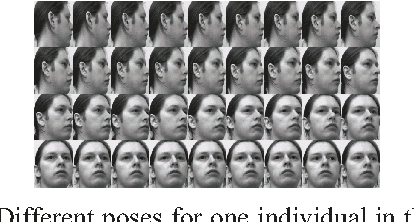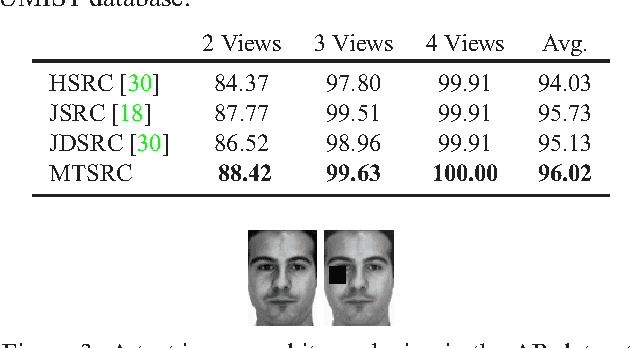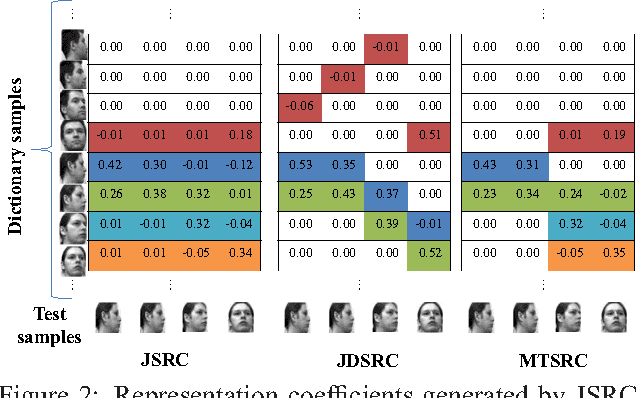Quality-based Multimodal Classification Using Tree-Structured Sparsity
Paper and Code
Mar 08, 2014



Recent studies have demonstrated advantages of information fusion based on sparsity models for multimodal classification. Among several sparsity models, tree-structured sparsity provides a flexible framework for extraction of cross-correlated information from different sources and for enforcing group sparsity at multiple granularities. However, the existing algorithm only solves an approximated version of the cost functional and the resulting solution is not necessarily sparse at group levels. This paper reformulates the tree-structured sparse model for multimodal classification task. An accelerated proximal algorithm is proposed to solve the optimization problem, which is an efficient tool for feature-level fusion among either homogeneous or heterogeneous sources of information. In addition, a (fuzzy-set-theoretic) possibilistic scheme is proposed to weight the available modalities, based on their respective reliability, in a joint optimization problem for finding the sparsity codes. This approach provides a general framework for quality-based fusion that offers added robustness to several sparsity-based multimodal classification algorithms. To demonstrate their efficacy, the proposed methods are evaluated on three different applications - multiview face recognition, multimodal face recognition, and target classification.
 Add to Chrome
Add to Chrome Add to Firefox
Add to Firefox Add to Edge
Add to Edge